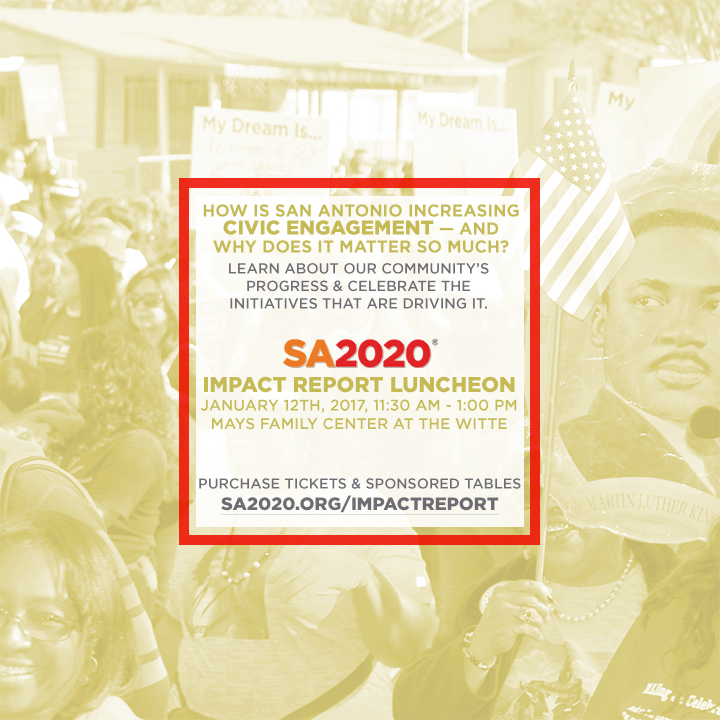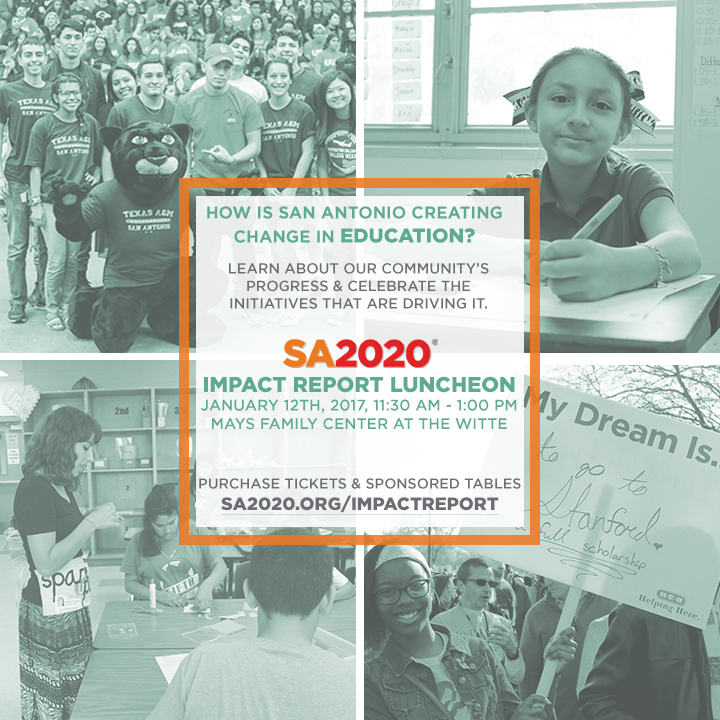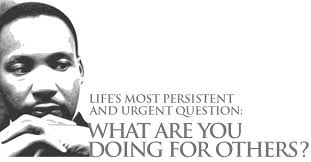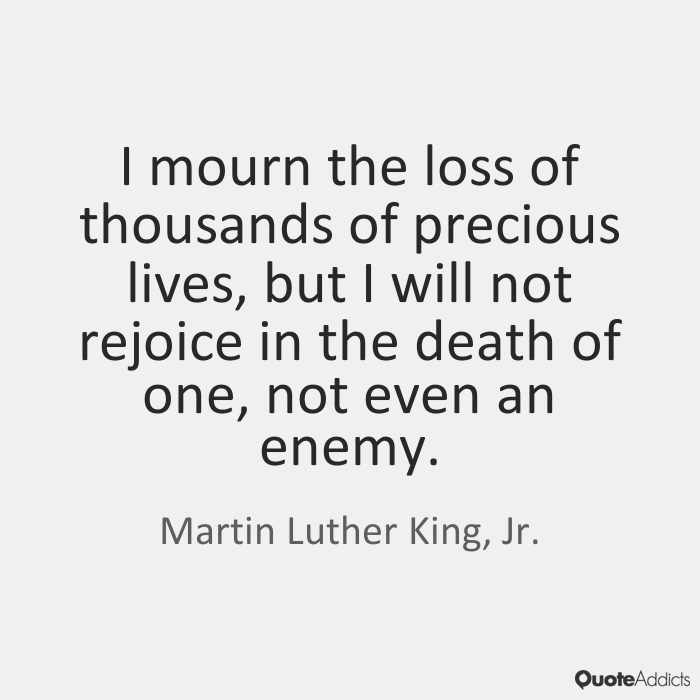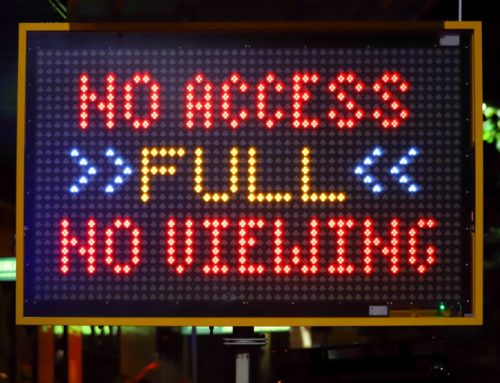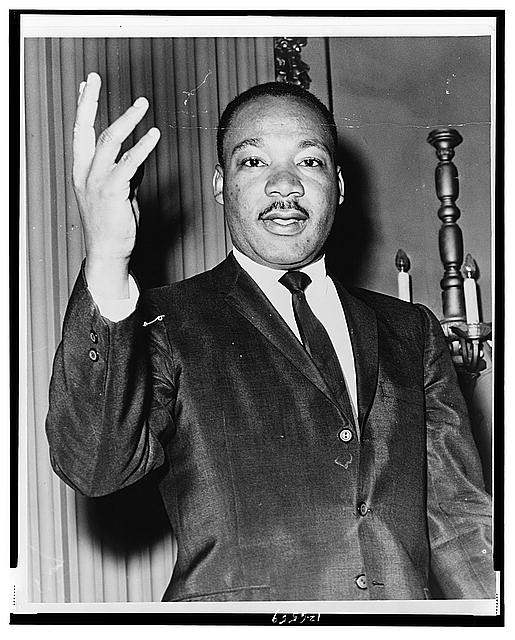 Recently, a well-meaning individual called asking if I would speak to her group for the Martin Luther King Jr. holiday, including that someone needed to explain, “Why we had the day off.”
Recently, a well-meaning individual called asking if I would speak to her group for the Martin Luther King Jr. holiday, including that someone needed to explain, “Why we had the day off.”
Maybe she wondered why I was a little quiet at first, but she didn’t ask and I didn’t bother launching into my spiel about civil rights being a discussion-worthy topic—even if it’s not a notable leader’s holiday.
I eventually said “Yes,” but here is what I didn’t say . . .
I grew up in a family that frequently discussed what the civil rights movement looked like, both on a national and local level. It wasn’t watered down to a single page in a history book or Dr. King or his beautiful, yet overplayed “I Have a Dream” speech. My mother, uncles, aunties, and their friends lived in terror as school-aged children. They were spat on, hosed down, bullied, and threatened. One friend was even shot while attempting to integrate our local school system—they considered their experiences lesser in comparison to what was going on in the rest of the nation. They also recognized plenty of present day “injustices” and reminded us that Dr. King’s “dream” would not be realized without serious efforts from future generations.
When it comes to this topic, I find myself standing on the edge of a cultural soap box . . .
But over the years, I have learned to accept that people need a holiday as a reminder of the courage, truth, justice, compassion, dignity, humility, and service that so radiantly define what we know about the civil rights movement.
I began asking my nonprofit buddies how they share the holiday at work. In some cases, it led to impassioned discussions about how this week is the perfect opportunity for nonprofit communication pros to do more than just announce that their agency will be closing for the upcoming three-day MLK holiday weekend.
Here are a few suggestions from those conversations:
Join the “Day On” movement – Imagine if more people viewed the MLK holiday as a “day on” rather than a “day off.” Instead of simply staying at home or shopping, remind your network that they could participate in service projects that strengthen communities, empower individuals, bridge barriers, and create solutions.
If your nonprofit doesn’t have something planned, consider promoting a local project. Perhaps one of your partner organizations has a meaningful project and needs additional help. If you’re at a loss to find events, check out the variety of free MLK Day resources available at MLKDay.gov.
By reminding your network that there is more to do than catch up on sleep, finally taking down Christmas decorations or watching “Selma” (although I personally hope to slide all of that into my weekend schedule), the “Day On” movement is a simple place to start. You can even use videos such as this stirring PSA from the National Council on Community Service as a call to action:
Try to relate “the dream” to something relevant – Dr. King’s dream was bigger than black and white friendships. Go beyond the cliché! Nonprofits can use some of his most inspirational speeches to start meaningful dialogue, but you don’t have to stop there. Dr. King shared a broad desire to see people triumph over poverty, racism, war and violence. Select something that conveys compassion, aligns closely with your cause, and resonates with your supporters.
Check out how Feeding America rallies their network:
One city-wide project called DreamWeek in San Antonio, Texas, features over one hundred events, with nonprofits that support a variety of topics, from autism to Jewish art to health and fitness. DreamWeek is all about pockets of PROGRESS in the San Antonio area– nonprofits helped to make a reality.
Here are two examples of marketing posts for DreamWeek that promote an impact report luncheon highlighting the progress made by nonprofit organizations such as My Brother’s Keeper (kudos for seeing the MLK holiday as an opportunity to generate excitement about their annual report).
Generate Your Own Posts – Simple posts can include your hashtag or a “Thank you” to those who volunteer for your organization using quotes like this one…
Share a blog post or op-ed– about how your organization/staff values diversity and inclusion (but only if that is truly the case . . . no BS). Don’t forget to use popular hashtags like #mlk #mlkday2017 and consider creating one for your organization, such as #ouragencynameontherise or #ouragencynamevaluesinclusion
These blogs might get you motivated to write:
“I Have a Dream”: 3 Lessons for Nonprofit Leaders from Dr. Martin Luther King Jr.
Not Just Another Day Off: A Call to Volunteer on the MLK Holiday-United Way
One Point of Caution– If you are using an MLK quote make sure that HE ACTUALLY SAID IT. There are several fake MLK quotes circulating on social media (QuoteAddicts and BrainyQuotes are not the most reliable sources). Some fake quotes are not so obvious.
This FAKE MLK quote was actually investigated by a CNN Reporter.
Last but not least…make a year-round commitment to develop a culturally competent communications strategy – I will be writing more about this topic in the upcoming weeks. As the United States is moving toward becoming a minority-majority nation, a lack of understanding can quickly sabotage well-meaning communications. As many of us already know, cultural competence is a much-needed step beyond what we saw repeatedly during the recent election cycle. Race, ethnicity, religion, identity, gender, and language employ additional challenges when we don’t consider those aspects in our communications strategy.
Let’s talk about it! Contact me at akerr@thewritefolks.net to share thoughts, ideas, and tips or if you want to be interviewed as part of our ongoing conversation about culturally competent communications.

